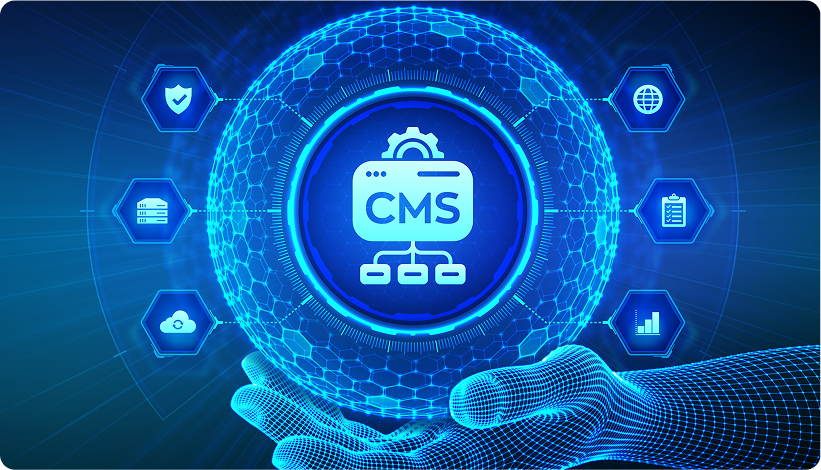
It’s 9 a.m., and the admissions team is chasing missing student documents. The accounts department is trying to reconcile fee payments from different campuses. Faculty are scrambling to adjust class schedules, while the exam cell is buried under piles of paperwork. Sounds familiar?
This is the reality for many colleges still relying on manual processes or disconnected systems. The result? Wasted time, frequent errors, and a lot of unnecessary stress.
A College Management System (CMS) changes this completely. It works like a central hub for the entire institution, connecting all departments, automating routine tasks, and giving administrators instant access to accurate information. From admissions to placements, everything is streamlined and easier to manage.
But not all CMS platforms are created equal. The real value lies in the features they offer. A powerful system doesn’t just tick boxes, it helps your college operate smarter, faster, and with a stronger focus on students.
In this article, we’ll explore the 9 key features of College Management System solutions that every institution should have, with real-world examples and practical insights to help you choose the right one.
1. Enrollment and Onboarding
The student journey starts long before the first lecture, it begins at enrollment. A robust CMS simplifies this process while ensuring compliance and transparency.
It should help you:
- Handle Applications: Collect and manage all applications in one place so nothing gets lost.
- Manage Documents: Store important student documents like certificates, ID proofs, and mark sheets safely in digital form.
- View an Admission Dashboard: See the overall status of applications, available seats, and progress at a glance.
- Follow Step-by-Step Process: Break the admission process into stages, application, verification, and approval, so it’s easy to track.
- Check Status in Real Time: Allow students and staff to see the current stage of any application.
- Keep a History Record: Store past admission details for quick reference.
- Compare Year-on-Year Data: Check trends in student intake and demographics over different years.
Example: With an advanced CMS, a college can cut down admission time drastically. Instead of manually checking papers and updating spreadsheets, staff can handle applications faster and more accurately.

2. Program and Course Management
Your CMS should make curriculum management as seamless as possible, because a well-organized course structure directly impacts teaching efficiency and student success.
Key functionalities:
- Create and Manage Courses: Add new programs, edit existing syllabi, and manage academic calendars in a few clicks.
- Curriculum and Lesson Planning: Enable faculty to align lectures with learning outcomes.
- Course-wise Attendance Management: Track attendance patterns and flag irregularities.
- CO/PO Mapping: Map Course Outcomes (CO) to Program Outcomes (PO) for accreditation purposes like NAAC or NBA
- Department/Branch Administration: Manage multi-department structures with ease.
Practical insight: For accreditation bodies, CO/PO mapping is non-negotiable. A CMS with automated CO/PO tracking can save weeks of manual spreadsheet work during audits.
3. Faculty Management
Teachers are the heart of any college, and managing their work well is important for smooth operations. A good College Management System helps keep all faculty-related information and schedules organized in one place.
It should let you:
- Manage Profiles: Keep detailed records of each teacher, including their qualifications, experience, and contact details.
- Allocate Faculty: Assign teachers to specific subjects, courses, or batches without timetable clashes.
- Map Timetables: Create and link faculty timetables automatically to avoid overlaps.
- Track Performance: Measure teaching quality using student feedback, attendance, and exam results.
- Analyze Mentor Performance: See how well mentors are guiding their students.
- Compare Results: Check and compare faculty performance based on student results across subjects or semesters.
Example: A college used faculty performance data from their CMS to spot teachers who were great at helping struggling students. They then assigned these teachers as mentors, which improved student pass rates significantly.

4. Grievance Management
In any college, it’s important that students, faculty, and staff have a safe and clear way to raise concerns or complaints. Whether it’s about academic issues, harassment, facilities, or policies, having a proper system to handle grievances ensures fairness and builds trust.
It should allow you to:
- Register Complaints Easily: Anyone—students, faculty, or staff, can submit a grievance online without unnecessary paperwork or confusion.
- Form Committees: Automatically create and assign the right committee members to handle different types of complaints, ensuring the right people are involved.
- Track the Complaint: From submission to resolution, both the complainant and administrators can see the status in real time.
- Manage Resolutions: Keep all records of actions taken, decisions made, and final resolutions in one place for accountability and future reference.
Example: If a student reports an issue about classroom facilities, the grievance system can automatically route it to the maintenance department, notify the committee in charge, and keep the student updated on progress until it’s resolved.
This way, no complaint gets lost, every case is handled on time, and the whole process is transparent for everyone involved.
5. Fee Management
Financial operations are complex, especially when multiple programs, scholarships, and payment channels are involved.
Must-have features
- Seamless Fee Handling: Automates fee collection and receipt generation.
- Track and Address Fee Defaulters: Sends automated reminders to overdue accounts.
- Comprehensive Scholarship Records: Tracks eligibility, disbursement, and renewals.
- Centralized Multi-Location Fee Collection: Perfect for institutions with multiple campuses.
- Convenient Online Payment Integration: Supports cards, UPI, net banking, and wallets.
Practical insight: A multi-campus university integrated its centralized fee management module with an online payment gateway, which reduced reconciliation errors by 60% and saved hours of manual work for the accounts team each month.

6. Placement Management
A good CMS doesn’t just store student details, it should actively help students find jobs and internships. The right tools can make the whole placement process faster, more organized, and more successful for everyone.
Essential tools:
- Publish Job Postings Easily: A central platform where companies can quickly share job and internship openings.
- Filter Qualified Candidates: Automatically match students with opportunities based on skills, grades, or certifications.
- Track Placement Progress in Real Time: See which students have applied, been shortlisted, interviewed, or received offers.
- Manage Training Programs: Plan and monitor pre-placement training sessions to prepare students for interviews.
- Record Attendance for Campus Drives: Keep a log of which students attended recruitment events and interviews.
- Track Internships: Monitor student progress, gather feedback from employers, and store records for future reference.
Example: A large university used its CMS to automatically match students with companies based on their GPA, technical skills, and certifications. This reduced the manual sorting process from several days to just a few hours, allowing placement teams to focus on training and interview preparation instead of paperwork.
7. Exam Management
Handling exams can be one of the most stressful tasks for any college. From registering students to announcing final results, numerous steps must be completed correctly and on time. A College Management System can make this entire process faster, more accurate, and much less stressful.
Key capabilities:
- Easy Student Registration: Quickly register students for exams without endless paperwork.
- Hall Ticket Approval: Validate and issue hall tickets in just a few clicks.
- Smooth Exam Coordination: Plan exam schedules, assign rooms, and manage invigilators all in one place.
- Question Paper Management: Create, store, and distribute question papers securely.
- Proforma Management: Simplify the process of preparing and submitting required exam forms.
- Accurate Paper Evaluation: Track and record marks to ensure fair and accurate results.
- Pass-Board Analysis: Review results and analyze pass percentages for better academic planning.
- Results Publishing: Share results instantly with students through the portal.
Example: A college used its CMS to plan exam schedules, approve hall tickets, and record marks digitally. This cut down manual errors, reduced paperwork, and allowed results to be published days earlier than before.

8. Report Management
Reports are essential for tracking student progress, academic performance, and institutional efficiency. But creating them manually can take a lot of time and is prone to errors. A College Management System can generate accurate reports instantly, saving time and improving decision-making.
Essential reports:
- Attendance Reports: Get detailed records of student attendance for classes, labs, or events.
- Internal Marks Reports: Track and analyze students’ performance in internal tests and assignments.
- University Exam Reports: Compile and present official exam results in the required format.
Example: A university used its CMS to generate attendance and performance reports for all departments within minutes. This allowed faculty to quickly identify students who needed extra academic support and act before final exams.
9. Mentorship Program
Mentoring bridges the gap between classroom learning and personal development. A CMS can formalize and enhance this relationship.
Core features:
- Mentee Profile: Maintain a comprehensive student record.
- Attendance: Monitor participation in mentoring sessions.
- Documents: Store student projects, recommendations, and notes.
- Student Certification: Track certifications earned.
- Placement Report: Record and analyze placement journeys.
- Reports: Provide actionable insights into mentee progress.
Example: A design college used CMS mentorship data to identify students who could benefit from specialized workshops, leading to a 20% increase in job placement success.
Transform Your College with Edumate
The features of College Management System we’ve covered aren’t just “good to have”—they’re necessary for running a modern, competitive college. From admissions to alumni engagement, the right system can make every process smoother and more connected.
Edumate is one such platform that integrates all these college management software features into a unified solution. It’s designed to reduce administrative burden, improve decision-making, and enhance student satisfaction—all while keeping compliance and accreditation needs in mind.
If your college is still using multiple separate tools for different tasks, it’s time to switch to a single, integrated solution. In higher education, efficiency isn’t just about saving time, it’s about helping students succeed and building a stronger future for your institution.
Final Takeaway
Choosing a CMS isn’t just a tech decision—it’s a strategic one. Look for these features of college management system platforms, evaluate how they fit your institution’s goals, and invest in a solution that will grow with you. The result? Happier students, empowered staff, and a stronger institutional reputation.
Don’t let outdated systems hold your college back. Contact us now and take the first step toward smarter campus management.





